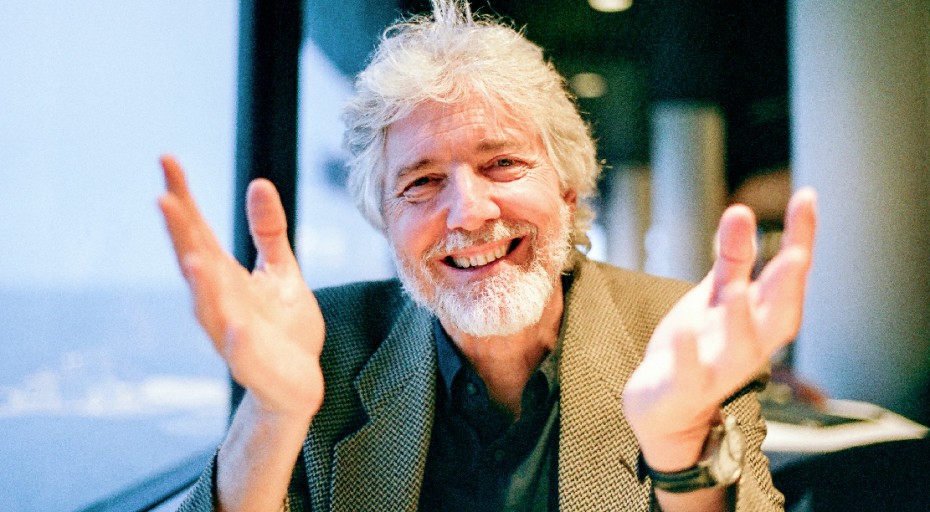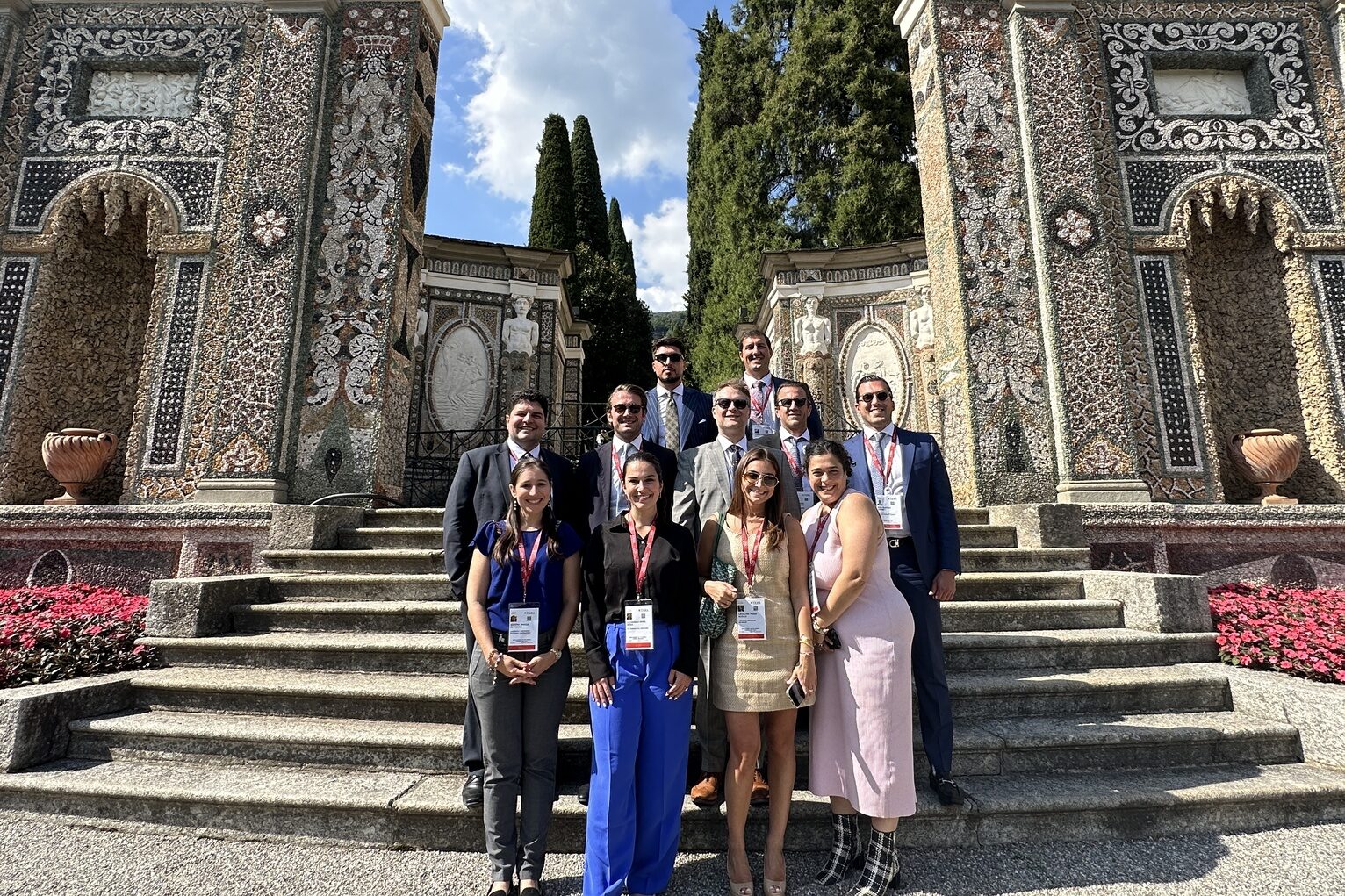“No Italians Need Apply” was the sign that Louis Rossetto’s grandparents had to read when they first moved to New York City from Bollengo, Piedmont, at the turn of the 20th century. The founder of Wired magazine is a son of Italy.
“My family was a part of the American assimilation story,” wrote Rossetto during our email interview. He also referred to the moment when his grandparents’ wine business got shut down during the anti-immigrant eruption that was Prohibition. “My grandmother told me, with tears in her eyes, how they even forced them to rip the mosaic that said “Italia Wines” out of the sidewalk on Bleecker Street when they forced them to close their store,” Rossetto wrote.
The reason to leave Italy for Wired visionary’s grandparents was because their “cascinas” were no longer enough to support a large family. “For the U.S., it was a mass migration. For Italians, it was a diaspora,” Rossetto wrote.
His family kept on going back and forth from the U.S to Italy.
This lead his father’s first language being “Piemontese” and his mom meeting Mussolini’s daughter during a visit at his mother’s school, previous to her final move to the U.S. right before WWII. “While my parents never spoke Italian at home, my siblings and I grew up in a house that was infused with Italy,” wrote Rossetto.
Eventually, he travelled to Italy with the family.
Rossetto has “vivid memories of the barns that still had Fascist slogans on them, of the scores of black bicyclists crowding the roads, of the original 500s, of watching Telegiornale on black and white RAI and the ad block that surrounded it. [He visited during a time when in] Rome there were no barriers at the Colosseum and you could walk in unattended and climb to the highest part of the stadium [and the] old widows dressed all in black for the rest of their lives.”
That Italian-American boy, glimpsing at his origins, ended up shaping the digital world founding Wired magazine, together with his wife Jane Metcalfe, 22 years ago. They received the 2015 Webby Award.
“This award was special because it wasn’t just for Wired magazine, it was for Wired’s pioneering the Web,” Rossetto wrote. “Wired built the first website with original content and Fortune 500 advertising — it started Web media. It invented the banner ad. Wired started as a magazine, but when Jane and I left Wired six years later, its digital operation was larger.”
How do you feel as the founder of the magazine that opened the Italian extension “Wired Italia” in 2009?
I was especially proud of the Italian edition; of all the international Wireds, it had the most energy and spirit. I became friends with Riccardo Luna, its first editor — and who has since gone on to become a leader of the Italian digital entrepreneur movement. I remember getting a call from the then US editor asking me to come in and discuss the Italian edition. He and his staff didn’t speak Italian, and all they could do was look at the design and pictures. They had this feeling that the magazine was exploitative and sexist. I told them about the provocative and sassy Italian magazine culture that Wired Italia operated in. And I had to patiently explain to them that the beautiful young man and woman on the cover dressed in sexy evening clothes and showing off cleavage and artificial legs were not just models demonstrating that prosthetics were acceptable, but the authors of stories in Wired itself about advances in prosthetic technology.
Thinking about the goals set when the magazine was found, which ones do you think have been reached successfully and which not?
We set out with what is ultimately the humblest goal of all entrepreneurs — simply to survive. Most companies fail. Most companies trying new stuff fail faster. We got a lot of rejection trying to get to market with Wired, from investors and media people. So the fact that Wired still exists — is thriving — 22 years after we launched, is success enough. The reason it survived was probably due to another goal, namely to not just be a witness to but a participant in the revolution. We broke stories in Wired because we saw the future before it arrived. And because we saw the future before it arrived, we were able to make an informed bet on the Web, where we helped pioneer the media form which has basically subsumed all other media. That’s a success. Failures? Well, if you fancy yourself a prophet, some predictions may not turn out right. Or not occur on the schedule you initially envisioned. For example, we expected that people would stop investing faith in the apparatus of the state, would instead realize that progress flows from using these new technologies in new, innovative, and voluntary cooperation that spanned the globe. Faith in the state is eroding, new modalities are growing — just not as fast as we had foreseen.
What would you do differently managing Wired, if you could go back in time?
Oh jeez, I will not touch that. Everything, including the mistakes, were necessary, could never have been avoided or changed, even with perfect hindsight. But if I was to give some advice to others starting businesses, I would say: remember, opportunity is not limited, and doesn’t only come around once. Stay focused, pick your battles, don’t be anxious, don’t be scared of making mistakes, it’s all prelude, and please, take time, every so often, to revel in the moment.
How do you feel about the positive and negative ways the internet has changed the media industry of today and where do you think we are leading?
The media industry had reached a cul de sac by the time New Media arrived in 1994. It had gotten fat and complacent, and had lost the thread — namely why it existed in the first place. Old media producers confused form with purpose. Media is not about making newspapers, or magazines, or television shows. Media is about content and community, delivered in the form that’s most efficient. In their time, print, radio, and television were effective in satisfying those needs. But the development of computers and networks meant new forms of creating communities and delivering content were possible, and, in time, more efficient. That doesn’t mean media is going away. It just means old media is going away. Newspapers and magazines are a shadow of what they were. Cable and now streaming services like Netflix, Amazon, and AppleTV are hollowing out traditional television, even as they enable new forms like the dramatic serial and mini-series. And even the original Web is changing with the arrival of social media. Where it’s going is the question of the hour. And the answer is to imagine what community can be aggregated and content be created and delivered given the new tools and the needs that are emerging.
Is there anything else you would like to add?
We started the Wired project 25 years ago. It was about a revolution. That revolution has changed everything, so much so that we can’t even see what it’s changed anymore, it’s just the world we live in, like water is what fish swim in. And like those fish, we have only the barest comprehension of our technological ocean. And this is just the beginning. As Italians, we know that 25 years is nothing in the human experience. Sitting here with our cellphones, and Netflix, and 3D printers, and DNA sequencers, and AI engines, we think we’ve come pretty far up the hockey stick. But 25 years from now, we’ll look back and realize that we were still on the flat spot. And in 25 years, however steep the rise has been, we’ll still be on the flat spot. Change is good.



























